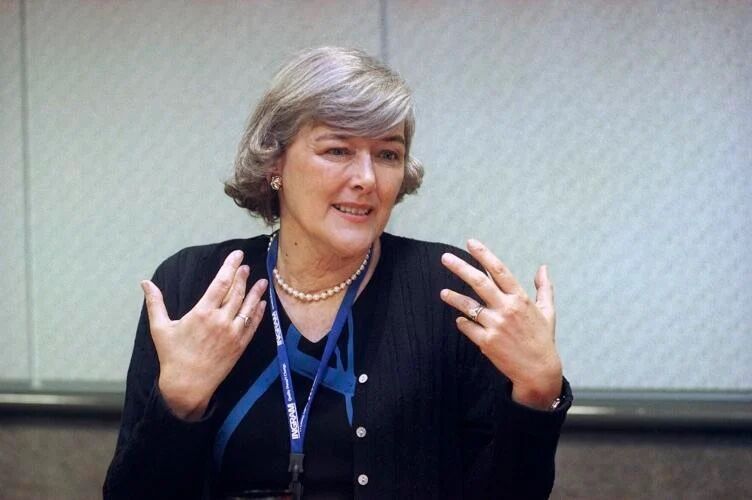#Coleg primary elections wrap up: Nail-biters, knockdowns, shakeups

A gray sky spit hail at last-minute Colorado voters, cars stacked bumper to bumper on Front Range roads, and primary elections ballots piled up at county clerks’s offices around the state, remaking in a preliminary way the shape of the Legislature to come.
In the year of Donald Trump, state Republicans lost two hard-line headline-makers in Colorado Springs Reps. Gordon Klingenschmitt and Janak Joshi. And experienced Democratic state Rep. Lois Court won a state Senate seat against a pair of insurgent progressive candidates in the year Bernie Sanders has rivaled Hillary Clinton for the party’s presidential nomination.
Senate Democrats
Rep. Lois Court took an early and commanding lead Tuesday evening in the race for the democratic Senate District 31 seat and never looked back.
Despite a heavy rainfall, Court supporters gathered at Beau Jo’s restaurant on Colorado Boulevard in a strong show of support for the longtime legislator and an American government professor.
When the first results were posted shortly after 7 p.m., Court said she felt the race was hers to win. She had garnered nearly 45 percent of the votes in the early round.
According to Denver Election results Wednesday morning, Court had 7,412, or 44.34 percent of the votes.
Court said she was “pleased” with the outcome of Tuesday’s primary.
Her supporters were as well.
Pamela Porter, a Congress Park resident, who attended the gathering Tuesday evening, said what she likes most about Court is her “institutional knowledge and her devotion to the city.”
“It’s wonderful that she will be taking that knowledge and devotion to the senate,” Porter said.
Erin Bennett, an advocate for working class Coloradans, said she was “proud of the campaign we ran.” Bennett also gave credit to her supporters. “We couldn’t have done this without them,” she said.
According to Denver election results, Bennett had 3,693 or 22.09 percent of the votes.
Now that Court will take charge of the senate seat that will be vacated by outgoing veteran lawmaker Pat Steadman, Bennett said she will fully support Court.
“I will be incredibly proud to be represented by Lois,” she said.
Steve Sherick congratulated Court and Bennett on a “hard-fought” race. He sent texts to both of his opponents and he said he has full confidence in Court.
“She’ll do a good job,” he said.
According to Denver election results, Sherick had 5,612 or 33.57 percent of the votes.
This was Sherick’s – a Denver ER doctor and medical business owner – first time to run for public office. He may not be ruling out another run in four years. “When Lois is done in four years, we’ll see,” he said Tuesday evening.
Court will face off against Republican challenger Bob Lane in the November general election.
In the Democratic race for the Senate District 33, Rep. Angela Williams was the big winner. When early results were posted Tuesday evening, Williams had swept all 91 precincts.
According to Denver election results Wednesday morning, Williams garnered 12,734 or 82.07 percent of the votes.
Williams said she was especially grateful to her supporters, volunteers and the community for her win. “Because we’re a team, we were able to do all of this,” she said.
Williams also said she plans to continue to stay active, to work in the community and get to know the issues.
Williams’s opponent was Jon Biggerstaff, who garnered 2,782 or 17.93 percent of votes cast.
Derrick Blanton, campaign manager for Biggerstaff, said Tuesday evening that young people didn’t come out to vote and that heavily impacted the outcome of the race.
“The Senate 33 race was decided by the lack of a youth vote that our message was aimed directly at and by the massive spending from out-of-state special interest groups that this campaign was rallying against,” he said. “Specifically, the spending by Democrats for Education Reform that invested heavily in mailers in our race as well as the House Districts 7 and 8 races.”
According to Blanton, 2 percent of the vote came from 18 to 24 year olds, 6 percent of votes came from voters under 30 years old, and 20 percent of the vote came from people under 40.
“We felt that was reflected in the vote,” he said Wednesday.
Mike Johnston is currently holding the senate seat. Williams faces a challenge in November from Republican Raymon Doane, who ran unopposed in the June primary.
In the Democratic Party race for the Senate District 29 seat, Rhonda Fields won handily over Su Ryden.
Fields said Wednesday morning that she was “feeling really good about our victory last night.”
She added, “The people of Arapahoe County see me as a champion and a fighter for them in the Senate and I am excited to serve them.”
According to Tuesday election results, Fields garnered 5,387 or 74.1 percent of the vote.
Fields said the Senate seat opens her up to more demographics. “I spent a lot of time East of Chambers Road introducing myself to the people there,” she said.
Fields said she looks forward to serving not only an urban area, but also a more rural area. “There’s a lot of the same issues, transportation, schools,” she said.
According to Tuesday election results, Ryden garnered 1,874 or 25.8 percent of the votes.
Ryden said she was happy with the time she spent in the Legislature. “It was a really good eight years,” said Ryden, who has a background in advertising and public relation.
Sen. Morgan Carroll, who has reached her term limit this year, currently holds the District 29 seat. Carroll, former Senate president, is running for Congress against Republican Mike Coffman in the 6th District.
Fields will face a challenge in the November general election from Republican Sebastian Chunn and Libertarian candidate Michele Poague.
Senate Republicans
One of the biggest races of the night, turned out to be a relative blowout. Loquacious former state Rep. Bob Gardner defeated lightning-rod internet preacher Rep. Gordon Klingenchmitt in the race to fill the Colorado Springs seat occupied by term-limited Senate President Bill Cadman, 62 percent to 38 percent.
Gardner said he was “gratified” to win by such a large margin.
“We were getting such great response when we went door to door,” he said. “It confirms what you thought, but you worry until the polls close.”
He’s confident he’ll win the general election, because he plans not to let up on his campaigning.
“It’s a predominantly Republican district, but we’re going to continue to work, reach out to people. I think everybody concedes it’s a very different year, but we’re going to continue to do our work reaching out to voters.”
Gardner is also ready to chip in to fuel larger Republican Party efforts.
“We’re over a huge hurdle. Mostly, we’re going to be thinking about how to keep a Republican majority in the state Senate, so I may be working for other candidates around the state as well as doing groundwork here.”
And his priorities in the Senate will mirror those of most of his Republican Senate colleagues.
“My priority has always been, as it was in the House, jobs and the economy and keeping a strong business climate in Colorado,” he said. “One thing I’m talking a lot about this year is comprehensive Medicaid reform, because if we don’t do something about the Medicaid budget, it’s going to consume the whole General Fund. I’m promoting the idea of statewide block grants and things that will help us control Medicaid costs. That’s going to be a major priority for me.”
In Douglas County District 4, presently represented by Senate Majority Leader Mark Scheffel, Jim Smallwood is barely out ahead of his opponents Jess Loban, and Benjamin Lyng. At press time, Smallwood seems to be up by 69 votes, or 0.46 percent of the total vote, which is not a small enough margin to trigger an automatic recount.
Loban, a former Libertarian party candidate, probably gained the most attention in the race. Analysts suggested Lyng and Smallwood might split the more moderate vote.
House Democrats
In Boulder
One of the closest races of the night was the contest that pitted Angelique Espinoza against Edie Hooton for Boulder’s District 10 House seat, a cornerstone Democratic seat at the Capitol presently held by Speaker of the House Dickey Lee Hullinghorst.
Numbers trickled in from the clerk’s office over the course of eight hours, the race narrowing as first the sun set and then the bars closed. The final “unofficial tally” posted at 2:49 a.m. put Hooton up by a mere 191 votes of 8,319 cast, or 2.3 percent.
Espinoza, tagged by pundits as the “insurgent” progressive candidate in the year of Bernie Sanders, seemed to have the wind at her back going into Election Day. She enjoyed buzz and name recognition as a longtime city council member. She had won 53 percent delegate support at the CD 2 assembly in the spring. And she was endorsed by the Boulder Daily Camera just days before ballots were mailed to voters. Still, Espinoza knew she was the underdog in the fight.
Hooton is a well-connected Democratic Party figure who has worked mostly behind-the-scenes to get others elected. She knew how best to get the lay of the land in the race and how to best raise and spend money.
“To all the people who backed me,” said Espinoza, warming into a pre-concession speech as her campaign’s early numbers lagged. “To all of you who supported me against the anointed candidate, to all of you who stuck your necks out for the dark horse candidate… Thank you.
“And to Edie Hooton, if she wins tonight, she deserves credit… We have to stay engaged, all of us.”
Espinoza reminded supporters that Republicans have controlled the state Senate with a one-seat majority and have blocked Democratic proposals repeatedly over the last two years.
“It’s frustrating when we send people with good progressive values to the Capitol but they can’t get any work done,” she said. “We have to win the Senate.”
Hooton told The Statesman she was confident in the race because she had worked the voter rolls intensely with campaign manager William Truesdell, a veteran of savvy youth voter-registration group New Era Colorado.
They targeted active precinct voters and wooed them personally. The voters then spoke for Hooton at the caucus meetings in the spring and reported back on the kind of support Hooton won at each of the caucus meetings.
So, even though Hooton lost 53 percent to 47 percent of assembly delegate support, she was confident that that was only because there was such preponderance of Sanders backers in the district, because Espinoza had aligned herself with the Sanders candidacy, and because many of the Sanders voters were new to the party process and so the state House District race was a low priority for many of them.
“The fact is, the (Espinoza campaign) thought they would knock me out at the assembly,” Hooton said. “I knew that wasn’t going to happen.”
In the months between the caucus voting and primary voting, Hooton targeted 12,000 registered Democrats in House District 10 who were “very likely” to vote in the primary.
“I knocked 900 doors personally,” she said, adding that the experience gave her a shock. “I thought, ‘Holy crap, no one knows who I am, and no one knows there’s a primary election!’
“So I just had to introduce myself to everyone at the doors. We sent flyers. We hired more door knockers. We really got to work. I was door knocking until 6:30 Monday night.”
In Denver
In swing District 3, in the south Denver metro area, in Arapahoe County, the district presently represented by Daniel Kagan, Jeff Bridges defeated Meg Froelich, 57 percent to 43 percent.
Bridges will face Republican Katy Brown, who defeated Rick Gillit, 74 percent to 26 percent.
In central-north city District 6, presently represented by Lois Court, Chris Hansen defeated candidate on-the-rise Jeff Hart, 58 percent to 42 percent.
In northwest District 7, which stretches out to the airport and is currently represented by Angela Williams, James Coleman in a nail-biter defeated Elet Valentine and Michele Wheeler, although at press time, the Associated Press has yet to call the race. Coleman appears to have won with roughly 41 percent of the vote. Wheeler notched 40 percent and Valentine 18 percent.
In central city District 8, currently represented by term-limited Beth McCann, who won the Democratic primary in the Denver district attorney’s race, Leslie Herod handily defeated Aaron Goldhamer, 61 percent to 39 percent.
In north metro area Commerce City Adams County District 32, presently represented by Dominick Moreno, who has won the Democratic primary for Senate District 21, Adrienne Benevenidez in a close race defeated Maria Gonzalez, 52 percent to 48 percent.
In Aurora District 42, presently represented by Rhonda Fields, who won the primary for Senate District 29, Dominique Jackson solidly defeated Eric Nelson, 71 percent to 29 percent.
And in rural southern-central District 62, presently represented by Ed Vigil, Donald Valdez defeated Alonzo Payne, 64 percent to 36 percent.
House Republicans
In swing District 3, in the south Denver metro area, in Arapahoe County, the district presently represented by Daniel Kagan, See above. Republican Katy Brown defeated Rick Gillit, 74 percent to 26 percent.
Northern Colorado Springs District 16 saw a major upset. Conservative lawmaker Janak Joshi lost to former state lawmaker Larry Liston, 39 percent to 61 percent. “Thank you to everyone who voted, volunteered and supported our campaign,” Liston wrote at his Facebook page. You can say that again. It was an ugly, raucous race, the subject of intra-party gossip and finger pointing. “Not to brag, but I’m a good candidate, I had a good message and I had a great campaign team,” Liston told the Colorado Springs Gazette Tuesday night. “It was hard-fought, hard-won, but we were confident coming into this.”
In south suburban Denver District 38, presently represented by Kathleen Conti, Susan Beckman defeated Mike Williams, 61 percent to 39 percent.
In northern Front Range Loveland District 51, presently represented by House Minority Leader Brian DelGrosso, Hugh McKean in a close race defeated Tom Lucero, 52 percent to 48 percent. Lucero has been a staple of the northern Colorado conservative community for years. “We celebrated, there was no reason for us to hang our heads, because we ran one helluva campaign!” he wrote on his Facebook page. Best of luck (to the McKean campaign) and onward to victory in November!”
Bonus fuel-for-speculation swing-seat section
Here’s a cursory look at a couple of key swing seats (or interesting races) ahead of the general election – bearing in mind the GOP U.S. Senate primary race may have spurred more Republican interest in Tuesday’s elections than did the Democratic races. The numbers suggest how close the races will be in November.
In Adams County House District 30, Republican Rep. JoAnn Windholz drew 1,867 votes and Democrat Dafna Michaelson Jenet drew 2,210 votes.
In Adams county Senate District 25, Republican Kevin Priola drew 4,707 votes and Jenise May drew 4,658.
In Arapahoe County Senate District 26, Republican Nancy Doty drew 8,613 and Democrat Daniel Kagan drew 8,263 votes.
In Arapahoe’s Senate District 27, Republican Jack Tate drew 10,249 votes and Democrat Tom Sullivan drew 6,594.
-John Tomasic














